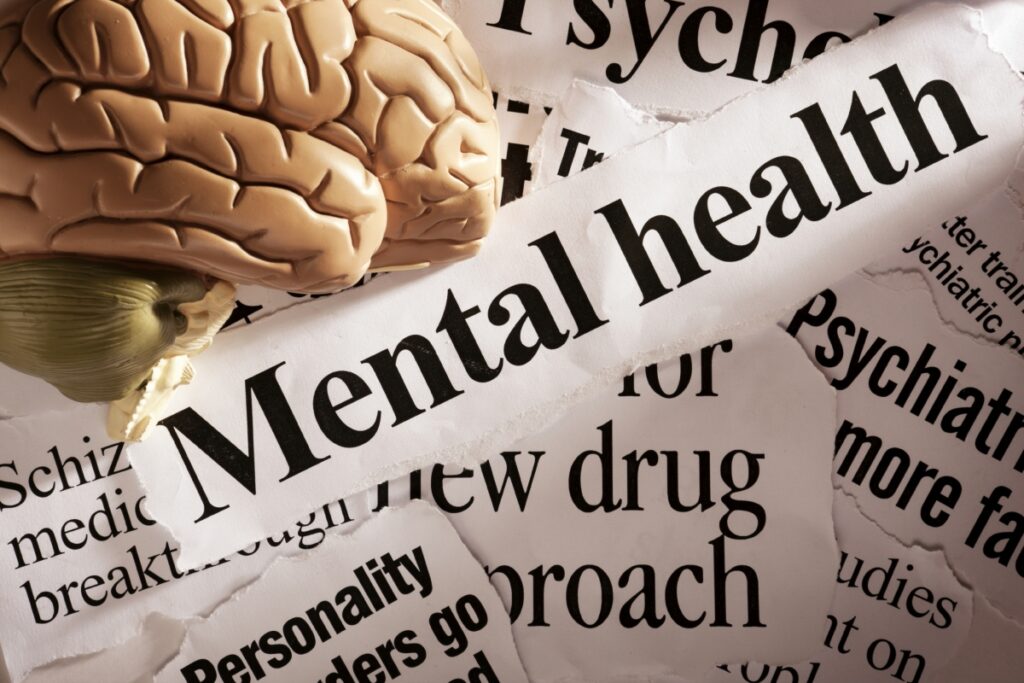
7 Surprising Links Between Sugar and Mental Wellness
Discover 7 surprising links between sugar and mental wellness, and learn how reducing sugar can boost mood, focus, and emotional health.
Introduction – The Sweet Truth About Sugar and Your Mind
Most of us know sugar isn’t great for our waistline, but the effects go far beyond weight gain. The surprising links between sugar and mental wellness show that the sweet foods you eat can have a direct impact on your mood, focus, and even long-term brain health.
Sugar doesn’t just give you a temporary boost of energy — it sets off a chain reaction in your body and brain that can influence how you feel emotionally. Over time, these effects can contribute to chronic mental health challenges.
In this guide, we’ll explore seven science-backed ways sugar impacts mental wellness, plus practical tips for reducing sugar and improving your brain health naturally.
1. Sugar and Mood Swings
One of the most immediate ways sugar affects mental wellness is through mood swings. When you eat sugar, your blood glucose levels spike rapidly, giving you a short-lived burst of energy and a feel-good sensation.
The problem comes when your body releases a large amount of insulin to lower your blood sugar. This can cause levels to drop too quickly, leading to irritability, anxiety, and fatigue. This cycle of highs and lows is sometimes called the “sugar rollercoaster,” and it can be exhausting for your mood stability.
Quick tip: Pair any carb-heavy food with protein or healthy fats to slow sugar absorption and avoid drastic mood swings.
2. Sugar’s Impact on Brain Inflammation
Chronic inflammation is a silent driver of mental health problems, and sugar is one of its biggest triggers. Excess sugar can cause an overproduction of pro-inflammatory cytokines, which disrupt communication between neurons.
Over time, this inflammation can contribute to conditions like depression, anxiety, and cognitive decline. Researchers have found that high sugar intake is associated with measurable brain changes, including reduced volume in areas that control memory and emotions.
Quick tip: Swap refined sugar for anti-inflammatory sweeteners like monk fruit or stevia, and increase intake of omega-3-rich foods like salmon and walnuts to balance inflammation.
3. Sugar and Dopamine Addiction
Sugar doesn’t just taste good — it literally rewires your brain’s reward system. Each time you consume something sweet, your brain releases dopamine, a neurotransmitter responsible for pleasure and motivation.
The more sugar you consume, the more your brain adjusts by reducing dopamine receptors, meaning you need more sugar to get the same effect. This creates a dependency similar to addictive drugs, making it harder to cut back and maintain emotional balance.
Quick tip: Try replacing high-sugar snacks with naturally sweet options like berries or dark chocolate (85% cocoa) to satisfy cravings without triggering dopamine overdrive.
4. Sugar’s Role in Anxiety Disorders
High sugar intake can overstimulate your adrenal glands, which increases the production of cortisol, the body’s main stress hormone. This heightened stress response can worsen symptoms of anxiety and make it harder to relax.
For individuals already prone to anxiety, sugar can be a hidden trigger. In some cases, reducing sugar has been shown to help stabilize heart rate, improve sleep, and lower general feelings of unease.
Quick tip: Replace sugar-heavy breakfast items like muffins or cereal with high-protein meals such as eggs, avocado, and leafy greens to set a calm tone for your day.
5. Sugar and Sleep Quality
Sleep is essential for mental wellness, but sugar can disrupt deep sleep cycles. Eating a lot of sugar — especially late in the day — increases the likelihood of waking up during the night and reduces slow-wave sleep, which is when your brain restores itself.
Poor sleep is linked to mood disorders, memory problems, and higher stress levels. Over time, this sleep disturbance can contribute to burnout and depression.
Quick tip: Avoid sugary desserts or drinks at least three hours before bedtime to give your blood sugar time to stabilize.
6. Sugar’s Effect on the Gut-Brain Connection
Your gut and brain communicate constantly through what’s called the gut-brain axis. A healthy gut microbiome produces neurotransmitters like serotonin, which plays a huge role in mood regulation.
High sugar diets feed harmful bacteria and yeast in the gut, leading to imbalances that can lower serotonin production and harm mental wellness. Symptoms may include brain fog, irritability, and even mild depression.
Quick tip: Incorporate probiotic-rich foods like yogurt, kefir, sauerkraut, and kimchi, and limit refined sugar to keep your gut-brain connection strong.
7. Sugar and Long-Term Cognitive Health
Research suggests that regularly consuming large amounts of sugar may increase the risk of neurodegenerative diseases like Alzheimer’s. Excess sugar leads to insulin resistance, which affects how brain cells use energy and can speed up cognitive decline.
Over time, high sugar intake can shrink the hippocampus, the brain area responsible for learning and memory. Protecting your brain now means making dietary choices that reduce sugar dependency.
Quick tip: Transition toward a balanced diet rich in healthy fats, lean protein, and low-glycemic carbs to give your brain steady, sustainable fuel.
Sugar’s Effect vs. Brain-Healthy Alternatives
| Aspect of Mental Wellness | High-Sugar Diet Effect | Brain-Healthy Alternative |
|---|---|---|
| Mood Stability | Blood sugar spikes and crashes cause mood swings | Steady blood sugar from protein, healthy fats, and complex carbs |
| Brain Inflammation | Triggers chronic inflammation and oxidative stress | Anti-inflammatory foods like fatty fish, nuts, berries |
| Reward System | Dopamine overstimulation leads to cravings | Natural sweetness from fruit, dark chocolate |
| Anxiety Levels | Raises cortisol and worsens anxiety symptoms | Balanced meals with slow-digesting carbs |
| Sleep Quality | Disrupts deep sleep cycles | Low-sugar dinners and herbal teas before bed |
| Gut Health | Promotes harmful bacteria overgrowth | Probiotic and prebiotic-rich foods |
| Cognitive Function | Increases risk of dementia and memory loss | Nutrient-rich, low-glycemic diet for steady brain fuel |
Practical Ways to Reduce Sugar and Improve Mental Wellness
- Choose whole fruits over processed sweets.
- Read labels to identify hidden sugars in packaged foods.
- Replace sugary drinks with herbal teas or sparkling water.
- Keep healthy snacks like nuts and boiled eggs available.
- Gradually reduce sugar instead of quitting all at once to avoid withdrawal symptoms.
FAQs – 7 Surprising Links Between Sugar and Mental Wellness
- What are the most surprising links between sugar and mental wellness?
Sugar impacts mood stability, brain inflammation, dopamine regulation, sleep, and long-term brain health. - Can cutting sugar improve mental wellness quickly?
Yes, many people notice improvements in mood, focus, and energy within one to two weeks of reducing sugar. - How does sugar affect anxiety levels?
Sugar raises cortisol levels, which can intensify stress and anxiety symptoms. - Is natural sugar from fruit bad for mental wellness?
Whole fruits are generally better because they contain fiber and nutrients, but portion control is still important. - Can sugar affect brain health in the long term?
Yes, high sugar intake over years can increase the risk of cognitive decline and dementia.
Conclusion – Protecting Your Mind from Sugar’s Silent Impact
The links between sugar and mental wellness are clear: too much sugar can disrupt mood, increase anxiety, harm sleep, and weaken cognitive function over time.
The good news is, you have control. By making small, consistent changes — like swapping processed snacks for whole foods and limiting sugary drinks — you can protect your mental health and feel more stable, focused, and resilient.
Your mind is worth more than a sugar high. Start making mindful choices today, and your future self will thank you.






One Comment